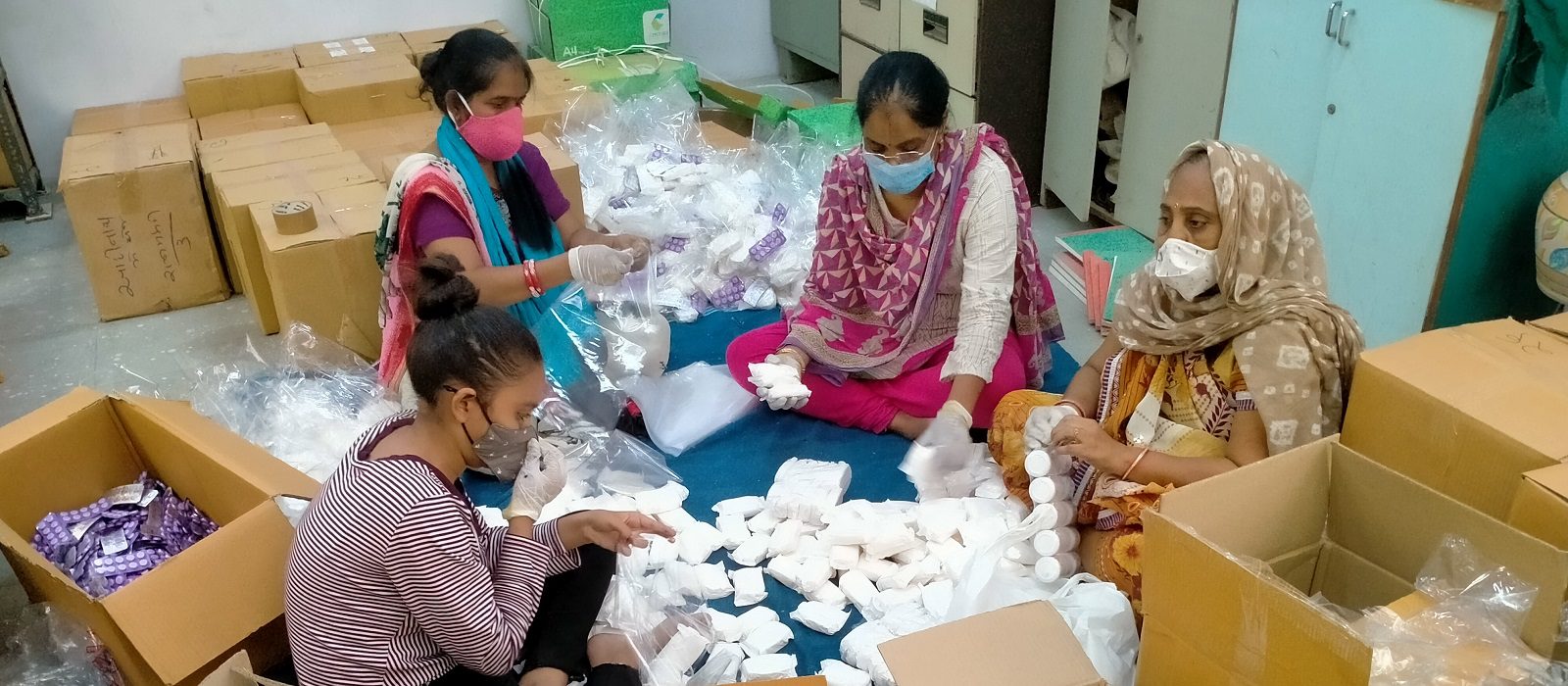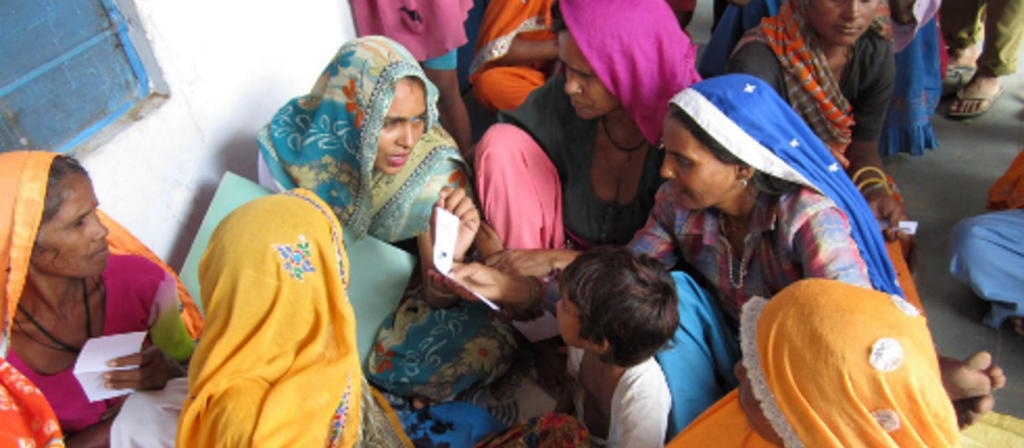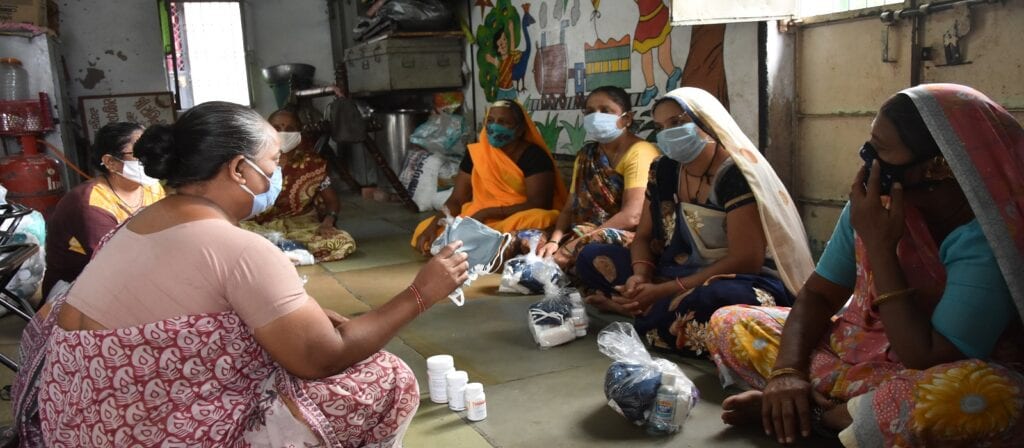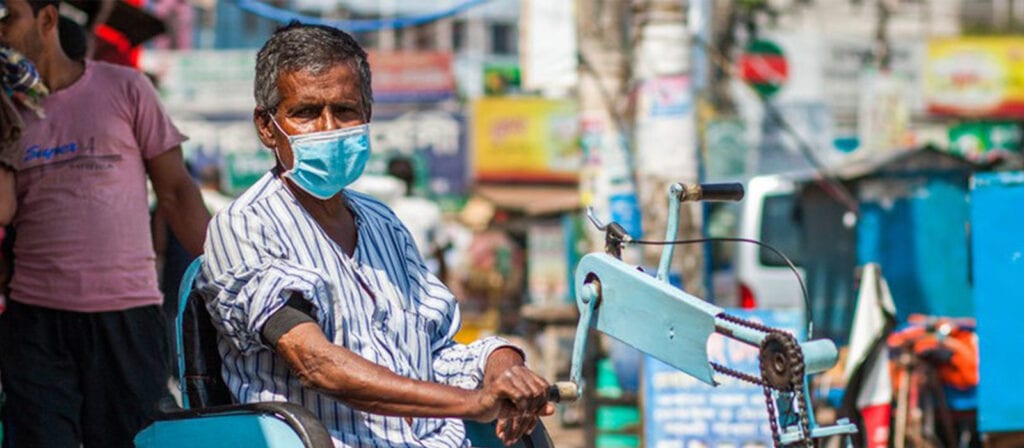The SEWA Cooperative Federation, Self-Employed Women’s Association (SEWA) in India, has been recognised by the World Economic Forum (WEF) as one of India’s last-mile Covid-19 responders. The list includes local organisations and social entrepreneurs which have, according to the WEF, demonstrated that swift action in four priority areas can enhance reach and scale in the difficult to reach ‘last mile’. The WEF believes that the efforts of organisations such as SEWA Cooperative Federation and its sister cooperative organisations can provide valuable lessons for other regions which are fighting new waves of the Covid-19. Indian ICMIF member National Insurance VimoSEWA Cooperative Ltd is one of the SEWA sister cooperative organisations.
SEWA Cooperative Federation is one of the many social entrepreneurs/initiatives on the World Economic Forum’s listing of Top 50 COVID-19 Last Mile Responders. Collectively these organisations have reached 171 million people, according to the WEF, most of whom are part of marginalised communities. Nominated by the 86 members of the World Economic Forum’s COVID Response Alliance for Social Entrepreneurs, organisations such as SEWA are providing support in four priority areas on-the-ground in India: prevention and protection; COVID-19 treatment and relief; inclusive vaccine access; and securing livelihoods.
SEWA Cooperative Federation was established in 1992 to support SEWA-promoted cooperatives. The Federation supports over 100 women-owned and women-led cooperatives, reaching 300,000 informal women workers across sectors, with the aim of achieving full employment and self-reliance for women workers in the informal sector.
The Federation provides support services that enable these cooperatives, and other collective businesses of women workers in the informal sector, to become viable, to innovate and to scale.
Covid-19 Response
According to SEWA Cooperative Federation, there has been a disproportionate impact from the Covid-19 pandemic with it being mainly women workers in the informal sector who are being affected. SEWA Cooperative Federation has worked with its sister organisations – SEWA Bharat, Lok Swasthya, SEWA Trust and Mahila Housing SEWA Trust – to respond to the pandemic.
The Federation’s efforts were focused on enabling access to basic health resources, information, awareness and restoration of livelihoods for these women. Through individual and community-level work, SEWA Cooperative Federation and its sister organisations have reached 19,311,926 informal workers across 14 states in India.
Mirai Chatterjee, Chairperson, SEWA Cooperative Federation, Self-Employed Women’s Association (SEWA) says: “The COVID-19 pandemic in India was beyond expectation, belief and our preparedness. Through our cooperative leaders, we reached the poorest and neediest with health relief efforts. We also supported our cooperatives with working capital, through which they were able to continue their business activities during the pandemic. Women have been at the front and centre of our work; they have shown the way to a just, community-focused recovery.”
Learn more about the work of the SEWA Cooperative Foundation during COVID-19 in this article written by Mirai Chatterjee in June 2021 for the WEF.
ICMIF Asia and Oceania Association provides support
ICMIF’s regional association, the Asia and Oceania Association (AOA), recently contacted Mirai Chatterjee to express their deep concern for the recent situation in India and how low-income communities were being affected by Covid-19. Fumio Yanai, Chair, Asia and Oceania Association of ICMIF said: “We know that SEWA has been working very hard on the front line in this difficult time to support members and local residents in their communities. On behalf of the AOA, I would like to offer my heartfelt sympathy to the people living in the regions hit by Covid-19 and to make a sympathy payment for their recovery.”
The donation was gratefully received by Mirai Chatterjee on behalf of the SEWA Cooperative Federation saying: “we are still in the phase of re-building. One study we just completed showed that 99% of those families interviewed said they had lost work and income and 69% have still not got back their jobs or work as informal workers. Women have been especially hard hit.”
Mirai Chatterjee explained that as far as insurance is concerned, they had managed to get a very good covid product from the big insurance companies for both home treatment and for hospital care. This meant that SEWA was able to insure 5000 front-line workers involved in both prevention and care of Covid patients which she described as “a small beginning”.
Mirai Chatterjee confirmed that she wished to use AOA sympathy support donation for both preventive health education and insurance education, so that more families in India are protected if some calamity or crisis hits, such as the current Covid-19 pandemic.






